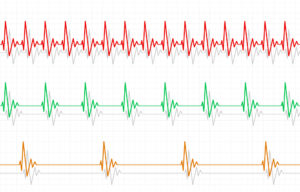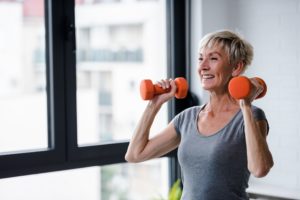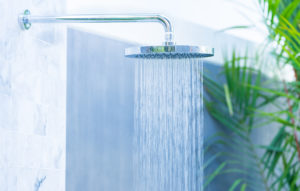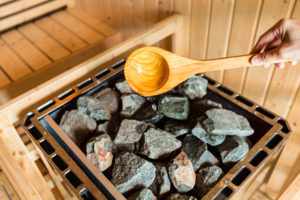 “Stress” as a word is generally associated with negative connotations, but there is a type of stress which is actually beneficial to our health. The concept of hormesis was developed more than a hundred years ago, and research in this area has rapidly expanded over the last two decades. The underlying principle was discovered by the German scientist Hugo Schulz and is where short, intermittent bursts of “hormetic stressors” can trigger a number of processes within our bodies that make us more resilient to future stress, and support the ageing process helping to contribute to a longer and healthier life. The saying “what doesn’t kill you, makes you stronger” underlines the principles of hormesis. Raising and lowering our heartbeat and body temperature has been proven to be beneficial to our health.
“Stress” as a word is generally associated with negative connotations, but there is a type of stress which is actually beneficial to our health. The concept of hormesis was developed more than a hundred years ago, and research in this area has rapidly expanded over the last two decades. The underlying principle was discovered by the German scientist Hugo Schulz and is where short, intermittent bursts of “hormetic stressors” can trigger a number of processes within our bodies that make us more resilient to future stress, and support the ageing process helping to contribute to a longer and healthier life. The saying “what doesn’t kill you, makes you stronger” underlines the principles of hormesis. Raising and lowering our heartbeat and body temperature has been proven to be beneficial to our health.
Recent Studies suggest hormesis as an anti-aging approach has a promising future. Below are a number of sustainable habit changes that can help you to activate hormetic stress.
HIIT Exercise
High-Intensity-Interval-Training (HIIT) is an increasingly popular form of aerobic exercise which includes bouts of high-intensity exercise interspersed with periods of rest. Many studies have found that it is one of the best types of exercise for boosting your resilience and has a particularly strong hormetic effect on your mitochondria — they become more efficient to deal with the stress, which increases your energy production and slows down ageing at the cellular level.
HIIT has taken the world by storm. HIIT is great for building strength in your muscles and supports the ageing process. It is simple to do from the comfort of your lounge room, and you can try a free Fit@60 HIIT workout here. Be sure to stretch before and after, and keep yourself balanced by alternating HIIT workouts with slower, restorative workouts like yoga.
 Cold therapy
Cold therapy
Wimhof has long purported the benefits of ice baths and putting your body under stress, more specifically Eustress. Eustress is “a recognisable form of stress for the body, and is short-lived. After sustaining such a stress boost, the body is able to fully recover”.
People who practice Wimhof’s method often report that their sleep quality is improved and that they are feeling more energetic during the day.
But you don’t have to take ice baths to reap the benefits of cold water therapy. Cold showers, and even simply spending time outside when it is cold has been shown to boost levels of certain immune cells, including certain T-cells, which play a role in killing some virally infected cells, as well as cancer cells. Deliberate cold exposure can also be incredibly beneficial in building brown fat, also known as brown adipose tissue (BAT). BAT is a special kind of fat that burns energy and glucose to generate heat and the process, called thermogenesis, has been associated with several longevity-associated molecules. All it takes is just 11 minutes per week of uncomfortable cold exposure, and that increase, in turn, supports cell longevity.
Furthermore, by exposing yourself to cold temperatures, your body increases the release of cold shock proteins which can slow down the progression of Alzheimer’s” and activate the immune system.
Heat Therapy
Saunas, hot yoga, and working out in the heat are other types of hormetic stress which are associated with “reduced all-cause mortality risk”. Namely, heat exposure, in a controlled environment, can boost the expression of aforementioned heat shock proteins in the body, which may help promote longevity and support the ageing process.
While there is a lot of buzz lately around the health benefits of infrared saunas, with many people suggesting they’re better than traditional steam saunas, as quoted by Huberman Lab, the jury seems to agree that regular sauna usage of around 57 minutes per week has been shown to promote longevity.
There are infrared saunas in just about every city and may be the preference for some. The recommended time for an infrared sauna is at least at least twice a week, with each session at least 15 minutes
‘Sauna usage is characterised by short-term passive exposure to high temperatures, typically ranging from 45 °C to 100 °C depending on the modality’. This exposure elicits mild hyperthermia, inducing a thermoregulatory response in an attempt to maintain homeostasis. Repeated sauna use acclimates the body to heat and optimises the body’s response to future exposures. In recent decades, sauna use identified strong dose-dependent links between sauna use and reduced morbidity and mortality including:
- Helps lower blood pressure
- Helps to detoxify the body
- Increases resistance to illness
- Relieves stress and tension
- Improves recovery and circulation
- Offers temporary pain relief
- Burns calories
- Mimics a cardiovascular workout so improves general fitness
 Intermittent Fasting
Intermittent Fasting
Fasting is another hormetic stressor with huge benefits. Our previous blog post we heard from Dr Lipman about the benefits of intermittent fasting. Intermittent fasting puts your body into a perceived state of stress, due to temporary nutrient deprivation. Fasting inhibits a cellular process called mTOR (mechanistic target of rapamycin), thus triggering a cellular cleanup process known as autophagy.
There are a few different types of fasting, and the one that works for you will depend on a variety of factors, but the main overall benefit of fasting is that many people find it easy to implement. The three main fasting methods are the 5:2, the 16:8 and the Fast 800. What works for each individual is a personal choice.
The more organised you are, the easier you’ll find intermittent fasting. Preparing your meals ahead of time and batch cooking, make intermittent fasting a breeze. You’ll find some suggestions here.
Engage in mentally stimulating and challenging activities. 
Author of Hormetics: Physical Fitness for Free People, Charlie Deist explains Hormetics as “the art of optimal and beneficial stress” and explains that we can find these beneficial stressors “all over the place”. He says that by going through some mental stress, can help you to gain strength that ties back into your life’s purpose and “gives you a sense of purpose, a will to live”. Learning new skills, engaging in challenging mental work, and having a lot on your plate can also constitute hormetic stress. While we often equate mental stress negatively, there is a delicate balance where challenges can stimulate some of the same cellular pathways mentioned above.
The key difference being though – in order for you capitalise on the stress, you need to feel like the stress is manageable and that you’re in control. If you feel helpless, the stressor becomes toxic.
Hormesis is proof that healthy stress does exist. Intermittent doses of “hormetic stressors’”, like cold exposure, intermittent fasting, and HIIT exercise can stimulate powerful cellular pathways that support overall health and may support your mind and body resilience in the face of ageing.
